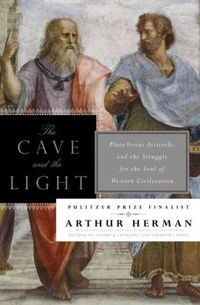The Idea of Decline in Western History
Arthur Herman. Free Press, $30 (528pp) ISBN 978-0-684-82791-9
Herman neatly sidesteps the question of whether the West is actually in decline. His disclaimer at the outset is that he only intends to trace the idea of decline as expressed by intellectual pessimists of various persuasions. Some doomsayers view the ""inevitable"" collapse with dread and resignation; others regard it with grim satisfaction. John Adams and Arnold Toynbee are typical of the first sort, Adams viewing Americans as squandering their birthright as the ""redeemer nation,"" Toynbee realizing that the British empire is not immortal after seeing ruined Baroque palaces in Venice. Representing the second type are American thinkers such as Gore Vidal, Christopher Lasch, Thomas Pynchon, Susan Sontag and Kirkpatrick Sale. Each of these paints the modern world as spiritually bankrupt, displaced and isolated, psychologically scarred. In this typology of ""decliners,"" the most interesting are the paradoxical ones, who welcome destruction as heralding a new order. Although Nietzsche and Herbert Marcuse deserve honorable mention in this category, it is Oswald Spengler who wins the prize, for The Decline of the West (1918-1922), in which he rejoices at the collapse of Europe and reassures his readers that the German master race is equal to the task of saving the soul of civilization. Herman, adjunct professor of history at George Mason University and coordinator of the Smithsonian's Western Civilization program, takes us through these heady thoughts with great panache and erudition, a brisk and cordial guide to the slough of despond. (Mar.)
Details
Reviewed on: 12/30/1996
Genre: Nonfiction
Open Ebook - 528 pages - 978-1-4516-0313-2
Paperback - 528 pages - 978-1-4165-7633-4


